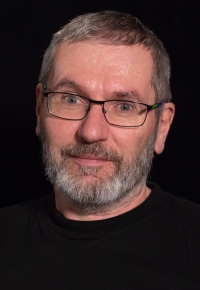We didn’t have more opportunities than the others. We just tried.

Download image
Tomáš Křivánek was a former member of the committee of the Jazz Section and a producer of concerts of alternative musical groups. He was born on 4 January 1955 in Prague as the son of a mail carrier. A trained machinist, it was the Jazz Section of the Union of Musicians that played a larger role in his life, which he encountered for the first time during the Prague Jazz Days in 1975. Soon after he got involved with the activities of the Jazz Section and became a committee member. He became a producer of concerts for alternative bands and a dramatist for the short-lived amateur stage of the U Zábranských Club. Later he also was engaged in production work for bulletins and other publications of the Jazz Section. On 2 September 1986, along with other members of the Jazz Section, he was arrested and accused of economic offences. After a wide wave of international solidarity before and during the trial, all involved were given lighter punishments than originally expected; Tomáš Křivánek would serve eight months’ time. After his release, he was behind the birth of Unijazz, a successive organization of the Jazz Section. In November 1989 he worked in the Prague headquarters of the Civic Forum, and then from December he founded the office of the Charter 77 Foundation. He started the recording label Globus International and in the 1990s he founded the internet center for the Open Society Fund. He is also the founder of the Bratrstvo Keltů (The Brotherhood of Celts) organization.

